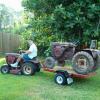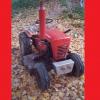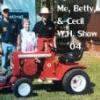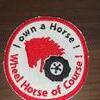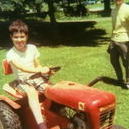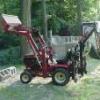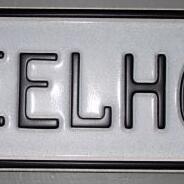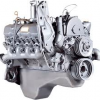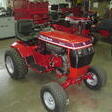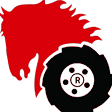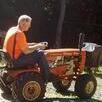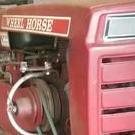Leaderboard
-
in all areas
- All areas
- Markers
- Marker Comments
- Marker Reviews
- Articles
- Article Comments
- Article Reviews
- Classfieds
- Classified Comments
- Classified Reviews
- Wiki's
- Wiki Comments
- Wiki Reviews
- Blog Entries
- Blog Comments
- Images
- Image Comments
- Image Reviews
- Albums
- Album Comments
- Album Reviews
- Files
- File Comments
- File Reviews
- Posts
-
Custom Date
-
All time
November 28 2011 - November 25 2024
-
Year
November 25 2023 - November 25 2024
-
Month
October 25 2024 - November 25 2024
-
Week
November 18 2024 - November 25 2024
-
Today
November 25 2024
-
Custom Date
06/07/2024 - 06/07/2024
-
All time
Popular Content
Showing content with the highest reputation on 06/07/2024 in all areas
-
10 pointsTruck-Farm tractors Truck farming refers to the practice of growing fruits, vegetables, and flowers on a small scale for sale in local or regional markets. The term "truck" in truck farming comes from the old English word "truckle," which means "small-scale" or "barter." This type of farming often focuses on producing a diverse range of crops on a relatively small plot of land. Farm tractors are too large for truck farming and prior to compact tractors geared to the truck farm a walk behind garden tractor or a hose or mule was the only practical way to tend to these crops. American made “truck farm tractors” include the Massey Harris Pony. John Deere L, the Allis Chalmers G and the Farmall Cub. They were light weight, tall enough to be used for cultivation of crops, and affordable. The farmer could get the job done with relative ease and use the tractor to maintain their lawn and driveway also. John Deere was the first manufacturer to venture into the compact tractor market. In 1936 the experimental Modey “Y” tractor was constructed using readily available parts to construct the prototypes. Only 24 Model “Y” tractors were built and their original power plant was a Novo two-cylinder engine coupled to a Ford Model A transmission. The Novo engine proved unsatisfactory during field trials and was replaced by a Hercules NXA engine. The Model Y was an experimental tractor and all were recalled to the factory. Most people would tell you that the first vertical cylinder John Deere was built in 1961 but now you know better! Based on the success of the Model “Y” development of the Model 62, powered by the same 2-cylinder ten horse power Hercules engine began. Although there were many differences from the earlier model the twin tube frame was retained. The cast front and rear wheels are different and the fenders are more rounded. The transmission is mounted to the front of the rear axle instead of the rear of the engine. Another feature that appears only on the Model 62 is the large JD logo that is cast into the rear axle housing and the cast shield below the radiator. In 1937 the Model 62 sold for $ 450 and only 78 were built. The Model 62 with slight modifications became the Model “L” later in 1937 retaining the Hercules engine until 1940 when a 14 horse power John Deere engine replaced it. With only a few minor changes the Model ”L” remained in production until 1946 with over 12,500 being built. In 1947 it was replaced by the Model “M”. The Massey-Harris Pony was manufactured from 1947 until 1957. About 28,000 of these tractors were built during the 10 year production run. The Pony was by far the most popular model of the Massey Harris four horse line, which included the Pacer, Colt and Mustang. This tractor was designed to compete with the John Deere L, the Allis Chalmers G and the Farmall Cub. Your local AGCO dealer can still order parts for these Massey-Harris tractors and plenty of aftermarket options are available. Engine parts are particularly easy to source, since the tractor used a Continental 1.0L four-cylinder gasoline engine – the same engine used in the popular Allis Chalmers Model G. The Farmall Cub was International Harvester Corporation’s smallest tractor and was introduced in 1947, the "Cub." With a 60 cu. in. four-cylinder engine and a 69-inch wheelbase, the Cub was aimed at small farms that had previously continued to rely on horse-drawn equipment. Production of the "Farmall Cub" commenced at the newly acquired Farmall Works, Louisville, Kentucky plant (formerly the wartime Curtiss-Wright Aircraft factory in Louisville) which was expanded, remodeled, and re-equipped. Selling for $545.00 in 1947, the Cub proved extremely popular, and the original design continued in production without significant alteration until 1979. 245,000 Cub tractors were produced between 1947 and 1979 The Model “G” is a small open concept tractor that was made by the Allis-Chalmers Manufacturing Company. At the time of its introduction the Model G was unique for its rear-mounted, Continental N62 four-cylinder engine. The Model G was designed for small farms and vegetable gardeners, and a line of implements specifically designed for it, including ploughs, planters, and cultivators. The design of the Model G allowed for a great view of the belly-mounted implements. The Model G was manufactured solely in the factory in Gadsden, Alabama, from 1948 to 1955. 29,976 units were built, which is less than Allis-Chalmers had originally hoped for. The Model G weighed 1,285 pounds, and was rated at 10 drawbar horsepower. The engine had a displacement of 62 cubic inches and was rated at 1800 RPM. The transmission was a non-synchronized three-speed with reverse. An additional 'creeper' forward gear was standard equipment as well.
-
7 pointsUpdate on one of our ongoing projects. We are progressing further in the restoration of the porch on our 1914 house in Mo. I've gotten the brick porch railing with stone caps put together. Got started on continuing the brick columns to match the pilasters on the house today. Just 378 more bricks to go. Trick will be to keep the columns vertical. Got a lot of small finishing details to tend to as well. Talked with our friend who is also a landscaper on Tuesday. Got him lined up for this fall. Got to get a concrete contractor lined up to replace the front walk before then.
-
6 pointsGot out on the lake yesterday and had one of my best limits of walleye/saugeye! In Oklahoma you can keep 6 with a 14" min slot. These six are 19.5-23"! Can't believe I culled a 18.5"! Never thought it would happen. Looking forward to a great fish fry!
-
5 points
-
5 points
-
5 pointsThis morning we slid in a new steam heat exchanger for one chiller and whilst the boys were buttoning up the piping, I mosied over to another bldg and got our nat. gas fired chiller going . Dewpoints close to 70 today.
-
4 points
-
4 points
-
4 points
-
4 pointsLook what's followed me home today. Another Wheel Horse C120, this one from 1975.
-
3 points
-
3 pointsRun several hrs and let the pepermint oil clean things up. On the night before the oil change, dump a whole bunch in the cylinder and let it sit the entire night. Crank as much out of the spark plug hole onto some shop rags and when you start it up, there will be a smoke screen of epic amounts. MMO still will work to some degree to clean the piston and rings when used as a piston soak.
-
3 pointsBob's has not been as helpful as I would like in finding WH parts the last few years. Stine's is usually better, especially if I already have a WH/Toro number in hand, but Stine's hours conflict pretty heavily with my work schedule. When I can get there though, the lady who works the parts counter seems to know everything back to about 1936.
-
3 pointsThanks Don. I have a couple sets of the gears on hand, and I've been able to buy the cross-shaft bearings from Lowell in the last few years. It's mostly the spindle bearings I was in need of. But most of my issues year to year have been in this area and so at this point I kind of just want to have a whole rebuilt rotating assembly on my shelf read to slap on the deck at a moment's notice.
-
3 points@Handy Don I just want to say that it’s guys like you that make this site the best. Taking the time to help someone new here to get up and running. Thanks for always helping and staying positive!👍🏻
-
3 points
-
3 pointsGreat job rebuilding that bar. How is the rod retained in the frame ? When I replace that rod I drill a hole where the E clip groove is on the factory one and use a cotter pin to retain it. This is the heavy duty version but retention is the same. I also drill the front pin for the clip to prevent the bar from destroying the center spindle Grease fitting.
-
3 pointsI had to take the pulley covers off of one of my decks. I got tired of having to reach underneath to do it. So I installed rivnuts. I bought the tool probably six months ago and this is the first time I’ve used it. Works great.
-
3 pointsI'm not shy about grinding them smooth it they have a little too much weld. Nice work, overall! (but I’m VERY surprised you didn’t have one of those in a bucket somewhere!)
-
3 pointsRebuilt a deck lift bar. Replaced the broken rear support rod and the front rod that was worn flat. Straightened the bent eye bolt and rethreaded the eye bolt and trunnion. Yeah I know, the my welds won't pass xray tests, but like my tractors, they work.
-
2 points
-
2 pointsWell that’s settles it…tomorrow I’ll get it good and hot and drain it. Thanks guys!
-
2 pointsMy understanding is that MMO is just some light weight oil with some detergent and a couple of other chemicals added (dissolved Necco wafers?) . I used it successfully, mixed 50:50 with diesel fuel to free up a seized K301 engine. Haven't used it mixed with oil in my small engines, but I do add it to my car engines, usually about a thousand miles before I have an oil change, hoping to loosen up some sludge. Jim
-
2 pointsThere are no "injectors" so avoid that "mechanic." Drain the fuel tank and fuel lines, replace the grommet in the bottom of the fuel tank and clean or replace the shutoff valve, replace the 1/4" rubber hoses with ethanol resistant hose. Replace the fuel filter. Use fresh gasoline when ready to start. Spraying the butterfly will do exactly nothing, spraying carburetor cleaner down the five holes around the the air filter mounting can help. Keep in mind that anything sprayed in the carburetor might find its way into the oil, you may have already contaminated the oil necessitating an immediate oil change. Fresh oil goes into the crankcase and fresh gasoline goes in the fuel tank, no snake oil should be used other than a bit of cleaner mentioned above. After running it for some time and the surging continues calls for more work. The most likely issue is gum, dirt or corrosion inside the carburetor and the only way to clean it right is to remove it and that entails some work since the exhaust and intake needs to come off. Before pulling the carburetor, spray WD40 around the split in the intake manifold while the engine is running to see if there is any effect. Also look for a missing welch plug just above the idle mixture screw. Download the Onan Service Manual for all the information you need. The welch plug can be seen in figure 2 on page 7-2 just above the idle fuel limiter cap. While the intake is off would be a good time to adjust the valves, I would bet that it was never done. As you go along, report back here for more information. Yes, there is some normal maintenance to be performed and once done should give years of life to the tractor.
-
2 points
-
2 points
-
2 pointsWorking on my 953 sickle bar project today. Slowing down the speed so not to grenade the wobble box. How's this for slowing it down? 3.25 inches on the PTO and 8.5 inches on the driven shaft The pulley I got from amazon didn't have set screws so I had to get a longer bit from amazon to drill and tap for set screws. The belt I need measured to be 43 inches and that's coming Tuesday.
-
2 points@Racinbob @c-series don @Lane Ranger How's this for slowing it down? 3.25 inches on the PTO and 8.5 inches on the driven shaft The pulley I got from amazon didn't have set screws so I had to get a longer bit from amazon to drill and tap for set screws. The belt I need measured to be 43 inches and that's coming Tuesday.
-
2 pointsOK - my two MMO sucess stories.... Chevy Vega - motor # 2 of 3.... Cold February day, collaped lifter, running on 3 ish cylinders. Drained a 1/2 quart, tossed in a bottle of MMO - 5 minutes it idles just fine - AND, it smells like NECCO wafers!!! Saturn SL1 - seems that the oil rings ARE designed to spin on the pistons!!! They sludge up, stop spinning and oil consumption shoots up.Per the service writer at the now long gone Saturn dealer - Position the car in the garage with tailpipe facing the door,,,,, pull the 4 plugs, add 1oz of MMO in the holes, let sit overnight to "wash" the rings. In the morning, spin the motor over with rags over the plug holes to catch any splash. Install plugs, fire it up until the white smoke goes away.... Performance goes up, oil use goes down.... They used to get $150 a pop for this "service".
-
2 pointsBarely broken in. A 520H with chains and the two stage blower is the ultimate snow removal machine. If you don't need it for snow removal, sell the two stage blower and put the mowing deck on. Do you have the 48 or 60" deck? Don't take it to the person that told you this. You P220 ONAN engine is not fuel injected. Surging is a common problem that is usually caused by a dirty carburetor or air leaking into the manifold seam. An easy fix for a good mechanic.
-
2 points
-
2 pointsNo idea why anyone would change the PTO to electric.. The instant on engagement is not good for the equipment and the wires are usually broken off too short to repair. IMO, the original PTO system shown on Mikes 953 pic was the best ever. No safety switches, easy to set the gap and pressure on the plate, and nothing to wear out.
-
2 pointsThank you for the feedback. I have 550 hrs on this and as I said, it starts quickly and runs beautifully. Only reason I may opt out is for 4wd and 4ws on JD. One JD dealer said they would not take this Wheelhorse in on a trade because of its age, the other would. Most likely will tune it up, then keep it. Sentimental thing for me seeing it has been with me this long!
-
2 points
-
2 pointsBeen a looooong time since I used any chemicals. I like the idea of leaving it in a couple hours and changing.
-
2 pointsMost of us on this site are running tractors at least 30 years old. I’m using a 1964 as my go to. If you kept up with maintenance on your 520 and have fewer than 1,000 hours, there is a lot of life left there. It is true that abused Onan P220’s can fail--it is my opinion that most are from not keeping the cooling fins clear and not keeping up with oil changes. Some part for Onans have become harder to get but things like filters and carb kits are still commonly available. Do your research on Craigslist, FB Marketplace, and the classifieds on this site to gauge value. Frankly, it sounds to me like that dealer smells a very lucrative sale.
-
2 pointsHow many hours on your own machine? Any pics? Anyone who tells you "parts may be difficult to come by" is NOT looking in the right place. I'd be cautious dealing with them... And trading that in? Nope. Especially on anything green or a "lawn tractor" Yours is a Garden Tractor. MUCH heavier duty And quite likely better built than most modern machines.
-
2 pointsPulled heads. One head bolt was missing and as I feared it was broken off. Luck was with me though as a few threads were sticking out and I was able go get vice grips on and unscrew it. Also, Onan head bolts are the same size so I may use one of those as I have a spare set here. Heads and Cylinders look good, just a bit of carbon. Engine openings closed up with plugs and block-off plates for cleaning. I will reinstall the heads for engine cleaning. I made up a hanger for the muffler to hold it for painting when I get the high temp silver paint.
-
2 pointsThe 1/2x82 does seem to be correct for a drive belt. The smaller inner belt for the hyd pump for my 953 was a 3L480 3/8x48. https://www.amazon.com/dp/B00IMEM1QM?ref=ppx_yo2ov_dt_b_product_details&th=1
-
2 pointsThe manuals list the drive belts as 1/2X70 for the 1054 and 1/2x82 for the 953. Something doesn't seem correct on that big length difference. Best to take some measurements. I buy all my belts at Tractor Supply. They can easily be returned if they don't fit. Correction, the manual lists a 1/2x82 belt for both the 953 and the 1054. It is the 1045 that uses the 1/2x70 belt.
-
2 points
-
2 pointsour beacon lighting went really well, quite a crowd turned up to see the commemorations.
-
2 points
-
2 points
-
2 pointsPicked her up, $400. Needs battery and second belt from inside ... transmission I guess. I'll be working on oil, battery and belt and see how it runs over the weekend. Anyone know the middle belt size or number offhand? Common belt to get local? I'll take some better pics soon but I believe she's a winner!
-
2 pointsLooks great from here! If my welds had to pass xray inspection, none of my work would be worth mentioning...
-
2 pointsFinally completed my C-175 restoration tonight, when it’s light out I’ll take it outside for some better pictures. I’m super happy with the way it turned out and really have to thank my brother for all his help! I will be bringing it to the show as it is this year’s featured tractor.
-
1 point
-
1 point
-
1 point

